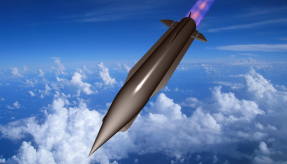
It has been estimated that it costs the Ministry of Defence approximately £450 million a year to run the equipment used by the UK’s Armed Forces. It’s a figure which suggests that not only can a change in approach to energy efficiency contribute significantly to easing the defence budget, it can also have a very positive effect on the environment. At every level, whether it’s governments, companies or individuals, there’s a growing necessity to reduce dependence on fossil fuels to minimise environmental damage through the release of greenhouse gases.
It is important to remember, however, that in addition to meeting its own environmental obligations, the MOD must ensure that it is prepared to deal with threats that environmental pressures could themselves generate. In the MOD’s own words: “… climate change, natural resource depletion, water scarcity, and energy and resource scarcity are all potential catalysts for increased unrest or armed conflict. These challenges will also present fresh demands on our people, infrastructure and equipment.”
But how does one bring about the change in approach required? Clearly, it will have to span every aspect of defence activity and permeate every level of the supply chain that supports the MOD.
Lincad has been providing military power management solutions to the MOD since 1986 and over that time has been driven by a twin ambition – to effectively meet the operational needs of the soldier in the field, at the same time as reducing the soldier burden by lightening the load that he or she has to carry. This drive for what is, effectively, increased efficiency has dovetailed in more recent years with the added requirement for a reduction in environmental impacts.
Lincad’s latest range of LIPS (lithium-ion power system) batteries represent over 15 years of evolution in battery technology and design. Continued improvements in specific energy have been enabled through the integration of new cell technology and enhanced mechanical and electronic design. The latest LIPS battery offers approximately two and a half times the specific energy of the original, allowing a soldier to carry fewer batteries to complete a mission. As technology continues to develop at pace, there is still considerable scope for further improvements.
As well as the prime source of power for a range of military applications, lithium-ion batteries are now increasingly used in hybrid systems with diesel generators, in both stationary and mobile platforms. Coupled with renewable energy technologies such as solar PV, they afford considerable reduction in greenhouse gas emissions and particulate matter, and a lower noise signal. Energy storage systems based on lithium-ion battery technology coupled with solar PV provide the opportunity to further reduce dependence on electricity obtained though carbon-based fuels, and provide a renewable energy source when grid connection is unavailable. This has been recently demonstrated in the relief efforts following the hurricanes that destroyed large parts of the Caribbean.
Battery technology therefore looks set to play an increasingly significant role within the defence sector. In the words of Peter Slade, Lincad’s Joint Managing Director: “Just like any other major organisation, the UK MOD has greenhouse gas emission targets and battery technology in its various forms can play a significant role in meeting those targets. The MOD is looking to industry, including SMEs like ourselves, to help reduce energy consumption and carbon emissions of military materiel and across the MOD estate.”
Lincad’s expertise lies in the development of bespoke batteries, chargers and power management systems across defence, security and other sectors. Working closely with major global cell suppliers, its R&D team test cell performance limits to ensure that challenging customer requirements can be satisfied. Working with the MOD and defence primes, it has established excellent relationships through its supply chains, and was the recipient of the Supply Chain Award in the Made in South East Awards.
While looking for energy efficiencies in its product line, the company also seeks efficiencies in how its products can be used. For example, the Caravel Mk2 charger, developed in co-operation with the MOD, offers enhanced, multi-chemistry charging of batteries from any Original Equipment Manufacturer, making it possible to bring an entire battery fleet under the management umbrella of a single charging unit. It has also been designed with a transport mode to allow batteries to be discharged to less than 30% so that they are suitable for transport by cargo aircraft. Lincad is also currently developing a multi-channel conditioning unit that will allow up to six different battery types to be prepared for air transport. These latest batteries offer enhanced diagnostics, allowing the end-user to interrogate how they are used and how the fleet can therefore be used more efficiently.
Powering the MOD in the future will – for economic, environmental and operational reasons – need to be achieved ever more efficiently. Realising that objective will require top-level initiatives, but in practice it will come from the dedicated R&D efforts of industry working to lighten the load on both the soldier and the environment.
For more information, visit: www.lincad.co.uk
If you would like to join our community and read more articles like this then please click here.
battery power Lincad LIPS lithium-ion power system Ministry of Defence soldiers







